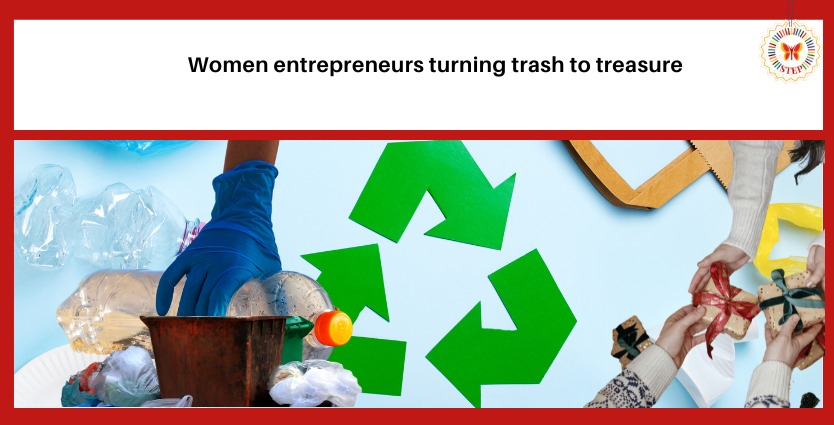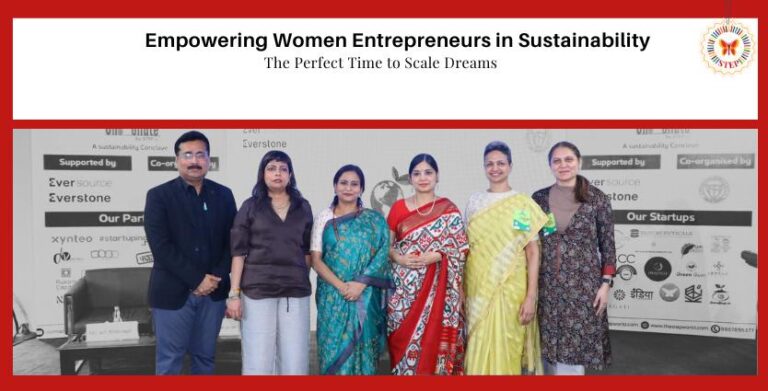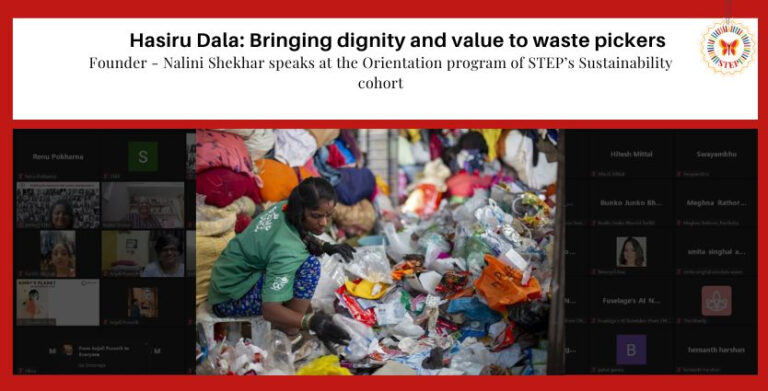Women entrepreneurs turning trash into treasure
More than 1,000 people died as temperatures hit nearly 52 degrees during this year’s hajj in Saudi Arabia. We’re only halfway through 2024, yet the global death toll from surging temperatures has been staggering, and a clearer picture is now emerging of extreme heat as one of the deadly emergencies facing regions around the world.
The urgency to combat climate change is evident. Intense heat waves are breaking temperature records and posing significant socio-economic and environmental challenges. By the century’s end, Earth’s surface temperature is projected to rise by approximately 2°C, devastating ecosystems, flora, fauna, and human populations. Increased greenhouse gas emissions, predominantly methane, carbon dioxide, and nitrous oxide, have significantly altered the atmosphere’s chemical composition.
Waste, an inevitable byproduct of human life, is a major contributor. Landfilling, the primary solution for waste management, poses significant environmental risks due to the gasses created during waste decomposition. The circular economy offers a solution through an innovative model that aims to maximize the use of material resources by reducing, reusing, and recycling.
Innovators Making a Difference
In this article, we explore innovative startups led by women entrepreneurs in waste management. These ventures pioneer new solutions to tackle the waste crisis, aiming to reduce environmental impact, improve waste processing, and contribute to a sustainable future.

ReCharkha – Amita Deshpande
Amita Deshpande founded ReCharkha, a Pune-based organization that upcycles plastic waste into products like bags and mats. About 90% of the raw materials used by ReCharkha come from homes and societies. People can drop off their clean plastic at their shops, or courier it.
The collected plastic waste is cleaned, spun into yarn using a charkha, and woven into plastic fiber on handlooms. Employing waste pickers and tribals, ReCharkha addresses plastic waste and revives traditional weaving skills, creating urban waste management solutions and rural job opportunities. They operate two shops, one in Pune and another in Mumbai, known as ‘reCharkha – The Ecosocial Tribe,’ with products priced between Rs 550 and Rs 3800. The company has grown steadily, achieving a turnover of Rs 2 crore with a dedicated team of 61 members, including 55 artisans working in two manufacturing units.
Highlights:
- Products: Beach bags, wallets, yoga mat bags, cutlery kits.
- Impact: Reuses around 50,000 plastic pieces monthly

Village Weaves – Rupjyoti Saikia Gogoi
Residing near Kaziranga National Park, Rupjyoti Saikia Gogoi founded Village Weaves, a handloom startup and self-help group that trains women to enhance their weaving skills and produce innovative products. The process involves gathering waste plastic from families, washing and drying it, cutting it into small pieces, manually turning it into long threads, and weaving these on looms. Gogoi’s initiative leverages the traditional weaving skills of Assam to provide sustainable livelihoods.
Highlights:
- Products: Doormats, handbags.
- Location: Outlet called Kaziranga Haat and social media platforms.
- Impact: Engages around 30 women in various self-help groups.
Strawcture Eco- Shriti Pandey
Shriti Pandey spent a year in a village in Madhya Pradesh where she was inspired by farmers burning crop stubble to make building materials from biomass, which is usually burned. These materials are renewable and absorb CO2 as they grow, which helps reduce the carbon footprint of buildings.
Strawcture Eco’s first product AgriBioPanels, is a green alternative to plasterboard and wood-based panels used for walls and insulation, providing better thermal comfort and soundproofing. Their second product, a biodegradable felt made from natural animal fibers, offers excellent thermal insulation, absorbs harmful chemicals (VOCs), and helps regulate indoor temperatures. The company is also researching sustainable paint and plaster options.

Highlights:
- Products: AgriBioPanels, biodegradable felt.
- Customers: Offices, co-working spaces, schools.
- Impact: Over 100 completed projects.

Scrapshala – Shikha Shah
An online start-up based in Varanasi, Uttar Pradesh, it specializes in upcycling a wide range of discarded materials, from wood, liquor bottles, and scrap fabric to flat tires and cassette holders, promoting a zero-waste lifestyle. ScrapShala manufactures its products locally, employing artisans who use traditional handicraft skills. It has created livelihood opportunities for over 100 local artisans across India
ScrapShala’s customized upcycling services for scrap and old items are available at their Varanasi workshop. Most ScrapShala products are handcrafted, with the premium range made from 60-90% scrap materials combined with 10-40% fresh, mostly natural and sustainable materials. Additionally, ScrapShala offers a range of personal care and lifestyle products made from 100% natural fresh raw materials. It also offers a unique experience for visitors to see live product making and meet artisans at their Varanasi workshop and conduct workshops and skill development projects.
Highlights:
- Products: Handcrafted items from scrap materials.
- Services: Customized upcycling, and workshops.
- Impact: Saved over 100,000 kg of non-biodegradable scrap.

Anthill Creations- Pooja Rai
Founded by Pooja Rai and her friends, Anthill Creations, a non-profit organization in Bangalore, originated from their experience witnessing children play in unsafe conditions at a care Centre. Motivated to provide a better alternative, they leveraged their architectural knowledge and secured funding to build their first playground in 2015. Costing only approximately Rs 20,000, this innovative playground proved significantly more affordable than traditional equipment, which typically costs around Rs 2 lakh.
They achieved this by transforming underutilized, barren lands within school premises and urban areas using upcycled industrial materials such as scrap tires, metal and oil drums, and recycled plastic boards to create innovative and contextually relevant play elements.
The success of their initial project garnered widespread media coverage and sparked inquiries nationwide The organization has successfully constructed approximately 380 playgrounds across 22 states in India. Anthill Creations engages directly with children and communities during the design and construction phases. They involve volunteers and community members from the outset to foster ownership and ensure sustained maintenance of the playgrounds.
Highlights:
- Materials: Scrap tires, metal drums, recycled plastic.
- Impact: Direct community engagement and sustainable playgrounds.

Future Step – Stepper Pavani Lolla
A sustainable startup transforming organic waste into high-quality compost. Their portable composter, named Vapra, priced at Rs 3,500, can handle up to 1 kg of organic waste daily and produces compost in just seven days. This impactful venture offers composting solutions for homes, apartments, societies, and even farms. Their dedication to sustainability has positively impacted over 150,000+ families and resulted in the production of more than 1 million kilograms of nutrient-rich compost. Further solidifying their commitment to the circular economy, they’ve partnered with the Telangana Agriculture marketing department and even introduced user-friendly garden composters.
Highlights:
- Product: High-quality compost, composting machines, and solutions for organic and farm waste
- Impact: Positively impacted 1,50,000 families, produced over 1,000,000 kgs of compost, 2 recycling plants in Hyderabad.
These women-led ventures showcase the power of innovation and social consciousness in tackling waste management challenges. By promoting upcycling, creating sustainable products, and fostering community engagement, these entrepreneurs are making a significant contribution to a cleaner and greener future. Their dedication serves as an inspiration for others to adopt a more sustainable lifestyle and address the global waste crisis.



